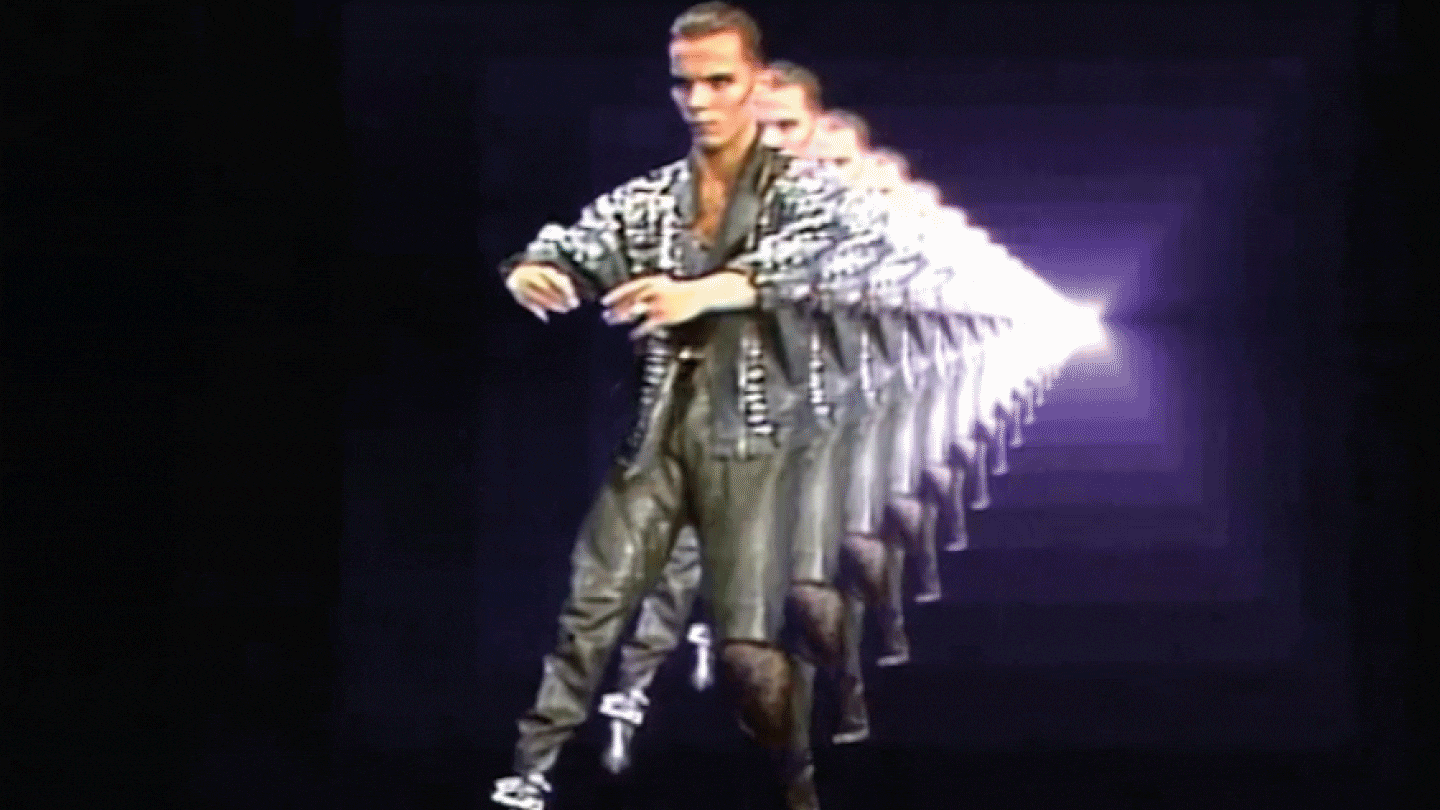September 15, 2022–February 12, 2023
Salt Beyoğlu
İstiklal Caddesi 136
Beyoğlu Istanbul
Turkey
Salt Galata
Bankalar Caddesi 11
Karaköy İstanbul
Turkey
The 90s Onstage explores aspects of the stage and performance in Turkey’s cultural scene during the 1990s. Spreading across Salt’s Beyoğlu and Galata locations, the exhibition presents a potpourri of Turkey’s cultural history, while addressing the individual and collective initiatives of artists and designers. Assembled from archival materials, the works included in the exhibition feature a variety of production styles, ranging from live performances to video clips and television programs.
The 1990s marked a period of political and economic instability in Turkey; there were eleven coalition governments in ten years, the 1994 currency crisis and the “austerity policies” that followed, as well as an increasing number of unsolved case files and political scandals, which hit the country hard. Even so, the decade’s legacy is not solely limited to these dark events; the ground for the civil rights struggle that thrived in the 2000s was instigated in the 90s. Pop culture enjoyed an unprecedented rise with the help of private television and music channels launched one after the other. Once the burden of the 1980 Turkish coup d’état dissipated and with the fall of the Iron Curtain in 1989, Turkey settled on a new line of cultural and economic circulation. In contrast to the country’s gloomy backdrop, a period of dynamism began, particularly in Istanbul, as the boundaries of freedom expanded in the fields of culture, art, performance, and entertainment.
It was also a time when Turkey’s art scene foregrounded the “interdisciplinary” concept. The medium of performance offered artists looking for contemporary forms of expression a way out or an escape from traditional disciplines with defined boundaries. The tie between the stage and performance, on the other hand, relied on a mutual dependence: as the stage opened towards life, the performance widened its horizon, and as performance expanded into new mediums, the stage transcended the conventions of art.
The 90s Onstage uses the notion of performance as a key point of inquiry into the decade in question, opening multiple avenues of critical interpretation in relation to the history of arts, culture, and entertainment in Turkey. It brings together works by artists Aydın Teker, Burak Delier, CANAN, Esra Ersen, Halil Altındere, Hüseyin Katırcıoğlu, Köken Ergun, Mehmet Sander, Moni Salim Özgilik, Özlem Günyol & Mustafa Kunt, Pilvi Takala and Taner Ceylan among many others. An array of productions expanding on the relationship between art and the street are accompanied by photographs, posters and correspondences from select events such as the Seretonin and Genç Etkinlik [Youth Action] exhibitions as well as the Assos Performing Arts Festival. The archival materials related to collective performances as well as individual works trace the intersection of a diverse range of performances that gained visibility throughout public sites such as parks, bars, historical landmarks, and off-the-beaten tracks, exploring unexpected connections that contribute to a broader understanding of the “stage.” In this context, the exhibition exemplifies how the stage has become an interface for creating short or long-lasting communities.
Organized as part of L’Internationale’s Our Many Europes project, The 90s Onstage is programmed by Amira Akbıyıkoğlu in collaboration with Emirhan Altuner (Design and Production) and Gül İçel (Project Assistant) from Salt, together with researcher Mine Söyler.
Our Many Europes is a four-year program initiated in 2019 by the museum confederation L’Internationale and its partners, and co-funded by the Creative Europe Programme of the European Union. L’Internationale gathers seven major art institutions: Moderna galerija (MG+MSUM, Ljubljana, Slovenia); Museo Reina Sofía (Madrid, Spain); MACBA Museu d’Art Contemporani de Barcelona (Barcelona, Spain); Museum van Hedendaagse Kunst Antwerpen (M HKA, Antwerp, Belgium); Muzeum Sztuki Nowoczesnej w Warszawie (Warsaw, Poland); Salt (Istanbul, Turkey), and Van Abbemuseum (VAM, Eindhoven, Netherlands), which team up with HDK-Valand Academy (Gothenburg, Sweden), and the National College of Art and Design (NCAD, Dublin, Ireland).
Founded in 2011 by Garanti BBVA, Salt is a not-for-profit cultural institution in public service engaging in research, exhibitions, publications, web projects, and public programs. The institution works at the intersections of different disciplines such as visual practices, the built environment, social life, and economic history. With its library and archive, Salt Research provides public access to the institution’s print and digital resources while contributing to the development of local and regional memory through its expanding collections.


